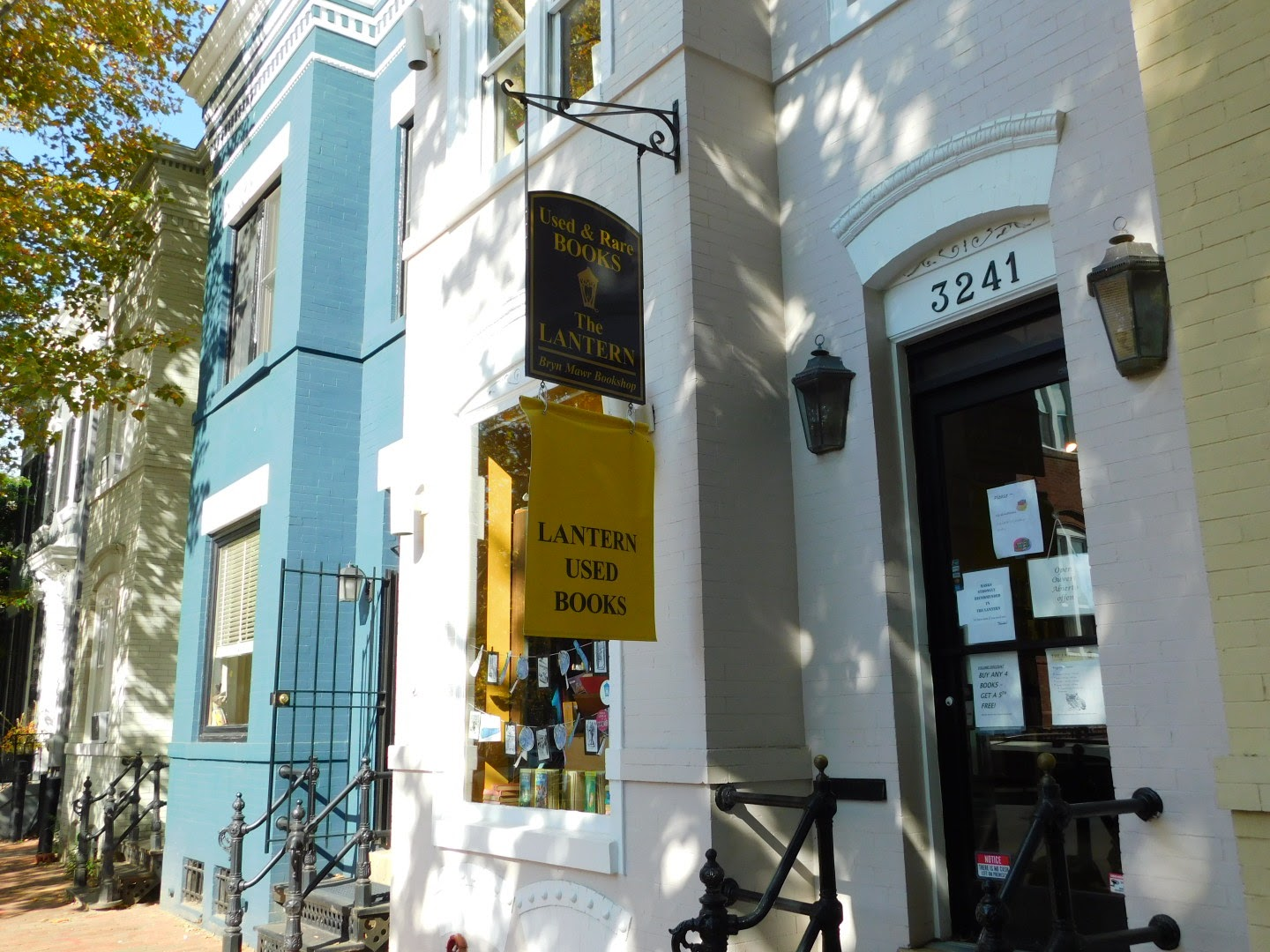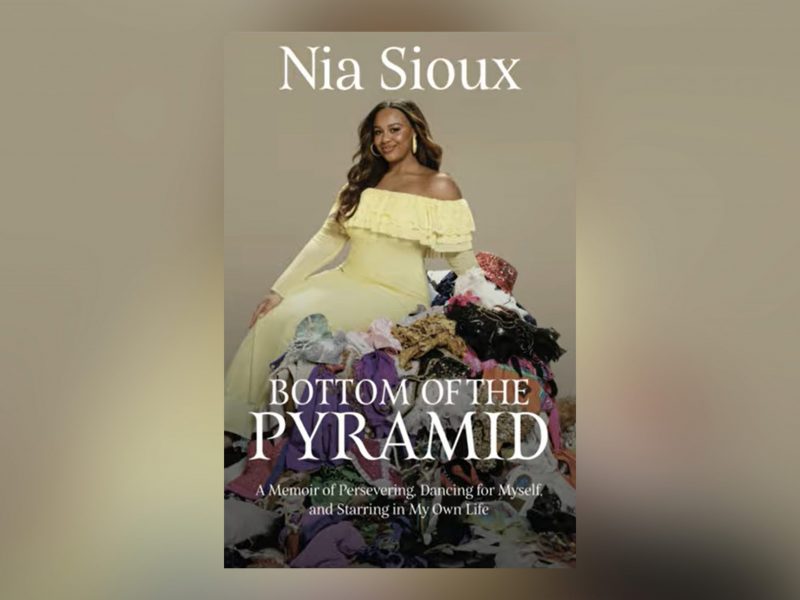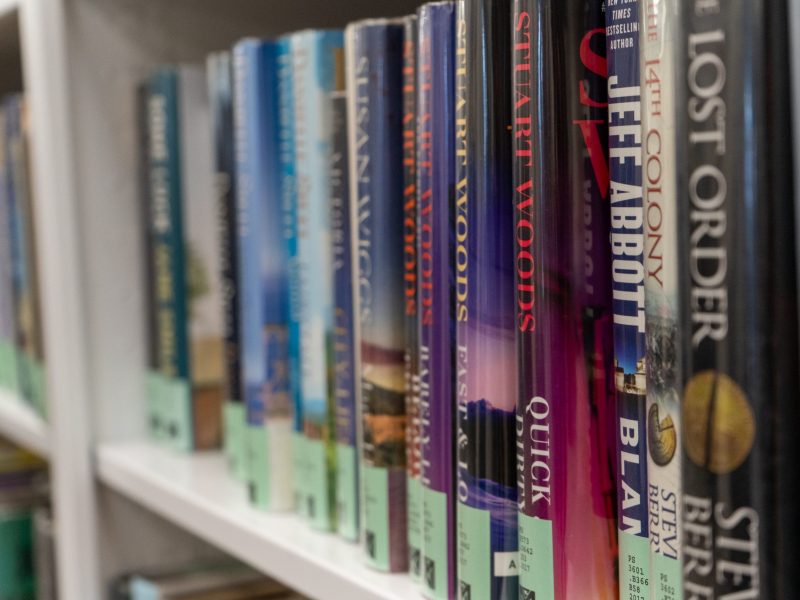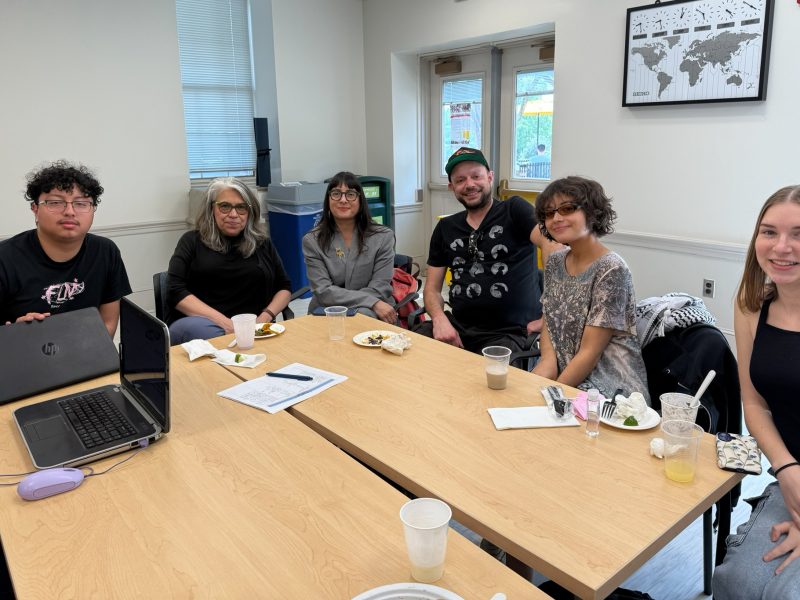In between colorful brick townhouses, a dark sign juts out on northwest P Street, flanked by a bright yellow banner. Inside the vivid building it adorns, rare, antique and used books light a path forward for Bryn Mawr scholars.
For more than 40 years, The Lantern Bookshop has provided Washington, D.C., residents with a home for their literary desires, all while raising money for students at Bryn Mawr College, a women’s liberal arts college in Pennsylvania. Now in its fourth location, the volunteer-run bookshop is open four days a week just off Georgetown’s bustling Wisconsin Avenue.
Since the 2022 closure of College Park Bookholders, University of Maryland students have lacked an affordable, accessible and on-campus used book retailer. The Lantern is an answer to this — walking distance from Metro’s Foggy Bottom-GWU station and situated just off Georgetown’s bustling commercial corridor.
The Lantern was quiet on the October morning I visited — a sanctuary from the busy shops that surround it. Volunteer bookkeeper Elizabeth Margosches sat behind the shop’s small front desk, with glasses propped carefully below a head of curled gray hairs.
As each customer wandered in, Margosches would hold them captive in the store’s doorway to provide a precise guide to The Lantern’s layout. Fiction upstairs. Foreign language against the back wall. Rare books on the shelf to your right.
[32 Bars unites students performers for fall musical production]
If The Lantern had a map, the store’s volunteers would be its experienced cartographers — each vastly attuned to the two stories of countless novels.
The Lantern was founded in 1977 by Diana Morgan Laylin Young, a Bryn Mawr alumna, to benefit the college’s students. Once one of 16 Bryn Mawr-associated bookshops and book sales across the country, The Lantern now survives alongside its sister shop in Cambridge, Massachusetts.
Since its inception, the Washington, D.C., location has raised more than $840,000 for Bryn Mawr College and associated scholarships, including $40,000 during the 2023 fiscal year. One of The Lantern’s greatest finds was a work of William Blake which was anonymously donated. The book sold at auction for about $75,000, Margosches said.
“We hope that it was intentional,” Margosches said with a laugh.
The Lantern has occupied its current location, a converted townhome-turned-art gallery, for more than 20 years. Owning the building outright has been a key factor in the bookstore’s ability to help Bryn Mawr, according to volunteer Noell Sottile. Without the pressures of renting and the risks of temperamental landlords, the store can focus more on its mission, Sottile said.
Community members donated every book, vinyl and CD on the store’s shelves, which is another reason why The Lantern remains viable after decades of operation. The store’s in-house expert sorts and appraises donations. Then, books are held in the building’s shallow basement until shelf space opens on the floors above.
[‘The Ballad of Songbirds and Snakes’ successfully stands on its own]
After a slow start on that quiet October Friday, more patrons began filtering in as the morning crept into midday. Emily Ho came in a little after noon. The University of Southern California graduate said the promise of antique literature and possibility of some 1930s-era finds lured her in.
“I’ve been to [bookshops] that are focused on 17th-century stuff, and then other ones are more new stuff, other ones are for-profit, but I like that this one’s donation-based and they’re not marking up everything,” Ho said.
While some of The Lantern’s rare finds can sell for hundreds, most of the store’s stock costs just a handful of dollars. For example, a gorgeous analysis of mid-century architectural design could be had for just three dollars.
The Lantern has benefited from a “gangbusters” post-pandemic boom of business, Sottile said. Margosches credited some of the increase in business to the return of the college community to Georgetown.
For Sottile, the reason for a post-pandemic book boom was simpler.
“People were stuck in their houses,” Sottile said. “They looked at books.”



